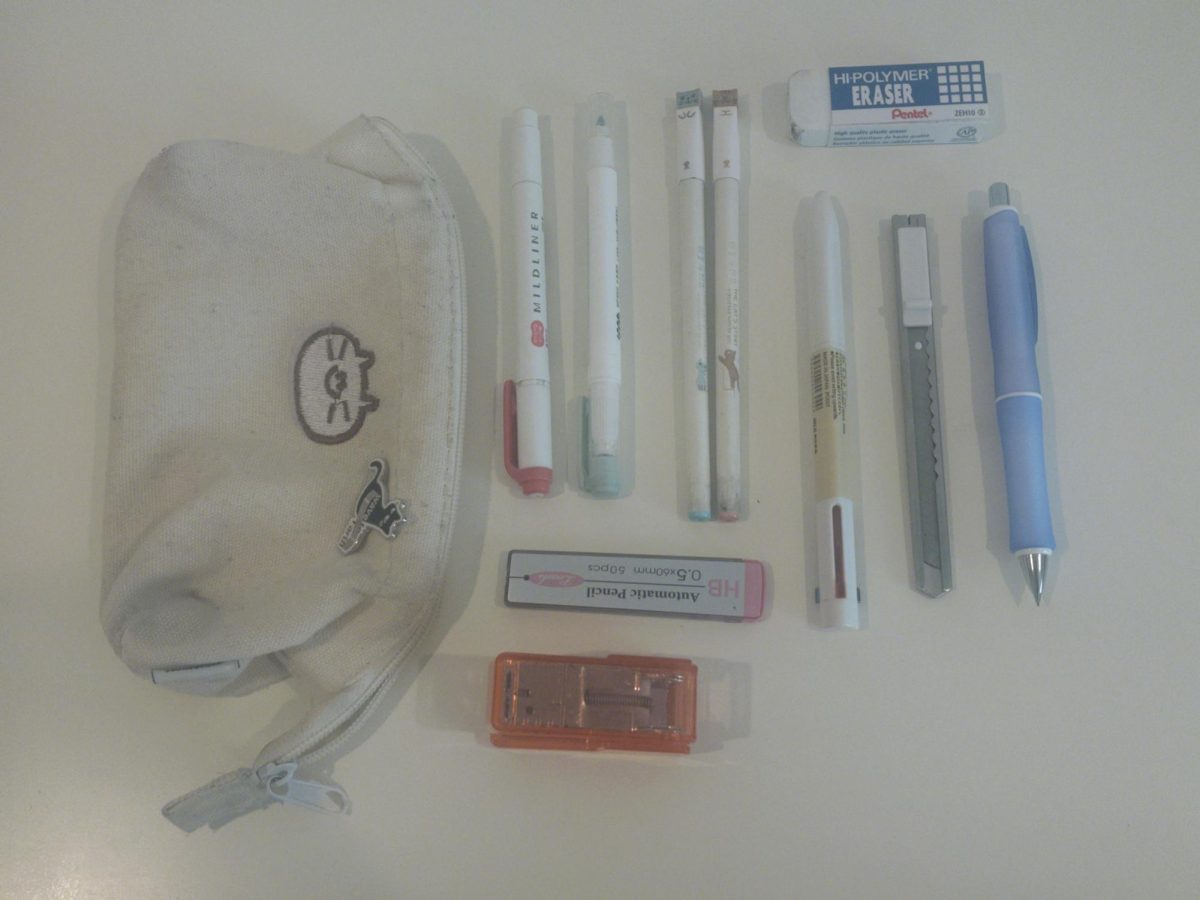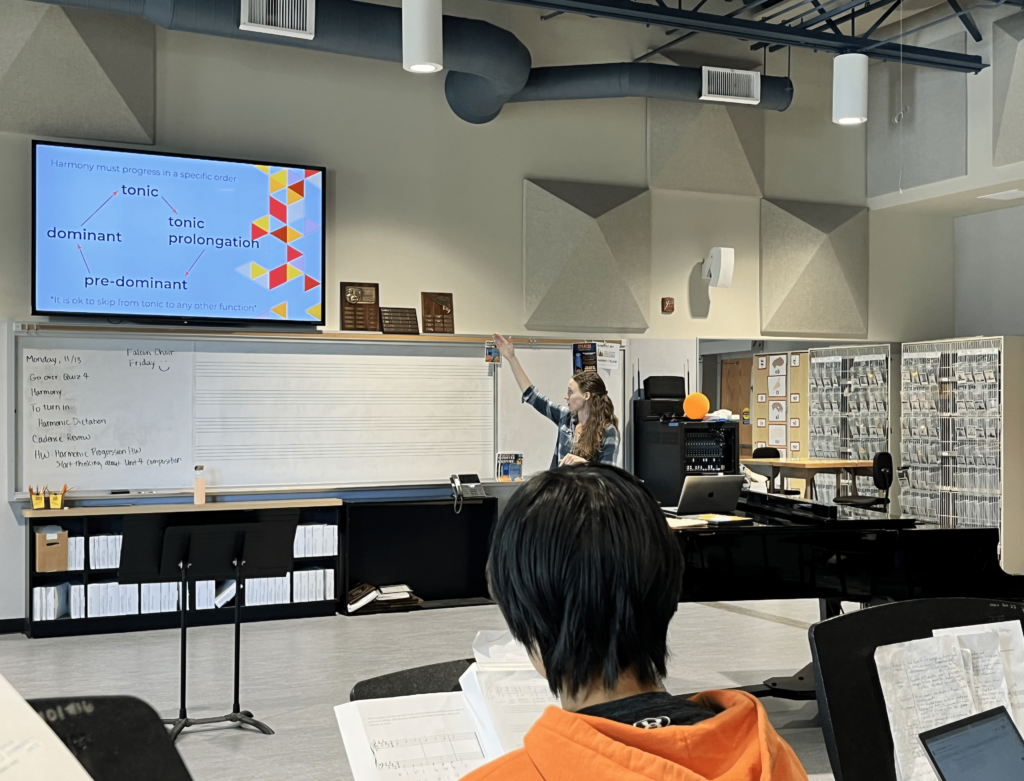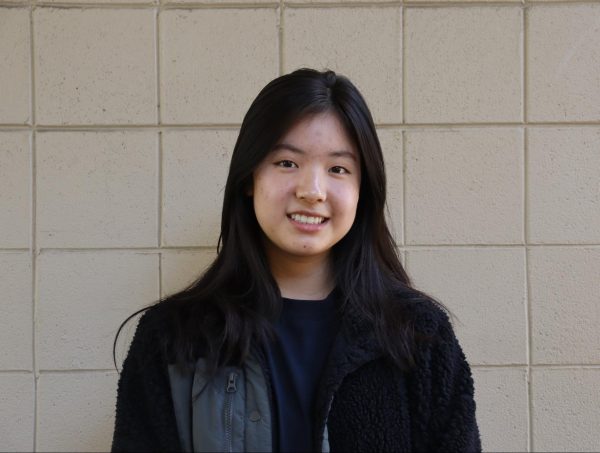AP Music Theory, a course usually offered every other year, focuses on music fundamentals such as melody, texture, rhythm, pitch and key signatures.
According to AP Music Theory teacher Beth Nitzan, the class aims to give students a compositional understanding of music and thus guide them to become better musicians.
“The class is all about how classical music is put together and how it functions under the hood,” Nitzan said.
Among other things, the content focuses on singing, dictation, ear training and demonstrating proficiency through written examinations and compositions. Following each unit exam, students create original compositions that synthesize the various skills they learned during the unit. The compositions are then performed in class.
To many students’ surprise, singing is a significant portion of the AP test, as it’s an ability all music students can benefit from. Hence, Nitzan often begins class with scale and interval singing as warm up and implements singing practice during various activities, such as analyzing music sheets.
“I was so scared when I first heard that we would need to sing in class,” junior Claire Zheng said. “However, after my first few classes, I realized how low risk it was, because Ms. Nitzan had fostered a very supportive community and most of my classmates were all in the same place as I was.”
Since 2021, Nitzan has taught AP Music Theory in addition to concert choir, chamber choir and philharmonic strings, the non-audition orchestra. Nitzan grew up playing the violin and focused on choir conducting at Pomona College; her passion for music prompted her to study music theory, which she feels helped open up a whole new perspective of musical context.
“I really enjoy music theory overall,” Nitzan said. “I was lucky to have learned solfège (music note syllables; do, re, mi, etc) at a very young age, and that has such a direct connection to music theory, so it felt like all the puzzle pieces were fitting together once I had a little more understanding.”
Because the class historically attracts fewer students than most electives, it usually runs every other year. It had 14 students in 2021-22, and now has 16. Nitzan notes while over 20 students at the start of the year, several of them dropped.
Nitzan said that the course can be extremely challenging for students with little or no musical background. Most of her students are proficient in either an instrument or singing, though the course’s difficulty for each student varies with the amount of prior knowledge they come in with. While the course technically starts at a beginner’s level, she said that the content accelerates beyond the basics within the first couple of classes.
Some students, like junior Leo Jia, appreciate the uniqueness of AP Music Theory, as the class runs differently compared to a typical AP course. The pacing is doable for him, since he joined with a foundational understanding of music theory from playing piano since he was 6.
“I thoroughly enjoy this class. I think it has a great instructor, and I [find it] entertaining and educational,” Jia said. “I gain a lot from this class as a whole.”
In order to adequately prepare students for the AP Music Theory exam, Nitzan gives exams every one to two weeks that mock the actual AP test, with various sections including dictation, sight singing, aural questions, multiple choice and free response.
Beyond preparing for the AP test, however, Nitzan hopes her students will be able to utilize their theory skills to their own musical pursuits and gain a greater appreciation for the complexity behind even seemingly simple pieces.
“AP Music Theory is such a fun class,” she said. “Students gain key musical skills from it; listening skills is such a big one, it changes the way you hear music, whether it be classical, pop or anything.”




























